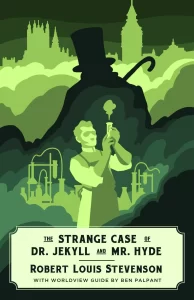“Space is pretty freaking cool. Right up there with dinosaurs.” (A passage from the upcoming novel ‘A Penny for my Thoughts’)
February 24, 2023
Space is a fascinating topic, absolutely out of this world to talk about. There are so many unanswered questions orbiting around this topic, but it’s hard to find any answers to gravitate towards. It’s so frustrating to not be able to leave our own planet that sometimes we have to wonder: does space even matter?
But sirusly folks, space rocks.
So, why is space dark? That seems to me like the real question here. There are two possible theories, one from a professional and one from an underground group you’ve probably never heard of called NASA:
The Boring Theory (NASA’s)
Well, we know that the sky is blue because Earth’s atmosphere scatters light from the Sun, so logically we can answer this with actual science. In space where there are no stars within the speed of light, there simply isn’t any atmosphere to scatter light molecules. This is why the sun is a solid white, because the colors on the spectrum haven’t been separated yet.
The Cool Theory (mine)
The sky on our home planet is blue for a variety of reasons. Maybe it was feeling down in the dumps several years before you were born (you would never know if it had been any other color, after all). Maybe our planet is radiating blue. But just perhaps, those hypotheses are complete udder cow dung. Ladies and gentlemen, boys and girls, I have the true solution. Not in my possession, of course, I’d patent the heck out of that and wouldn’t even be bothered writing this book if I did, but I can honestly say that I understand this concept within my ever-powerful brain. I mean, seriously, if I had that idea patented, I would probably be racing jet skis with laser sharks right now instead of writing this piece of crap (for more information on economics, see chapters 2 and 3).
Anyways, here is my theory. When the plastic in the ocean gets really condensed and too small to see, sort of like something else in my life, it also shrinks the water into its original state: H2O molecules. I call this sensation “Bubulum stercus”. Now, the molecules are released into the atmosphere. This is why the sky is blue, because there is a constant presence of water in the sky.
Now, there is one small flaw with this theory, in the minds of intrepid intellectual travelers of irritable qualities. In their idiotic state-of-minds, they could make the argument that if water were in the sky, it would fall on us. However, this is infallible and frankly a preposterous statement. Water only would fall in this circumstance because of the forces of gravity. Concurrently, one has to question gravity’s even existence in this circumstance. Maybe the force we feel when trying to jump for a sweet slam dunk-erino — or conversely when we drop our Dunkin donuts on the ground — is the water itself. What if we are underwater?
Conversely, what if our being underwater means that the sea is actually dry and above land, but the sensation was coined “wet” by scientists as a mistake? Will we ever realize this?
Now, ideally we wouldn’t, because then we’d start drowning due to being underwater. In the meantime, we are safe as long as we don’t realize it. Perhaps ignorance truly is bliss.
Now this is an ever so slightly more logical line of reasoning, defendable with a proper claim (it’d make for a really good AP United States History essay in that regard).
In conclusion, space is black to our eyes because we are underwater. Hopefully we don’t realize this and drown.














